Onimusha: Way of the Sword is a fresh start for the samurai saga that once captivated PlayStation 2 players, drawing more inspiration from films than the easily comparable soulslike genre. It was also the last game I got to see on my long Gamescom trip for both Toisto and KonsoliFIN—and the one that made the biggest impression.
By all appearances, the Gamescom demo takes place at the very beginning of the game. At least based on the cutscenes, which are exposition heavy and with a lot of tutorials baked into the action.
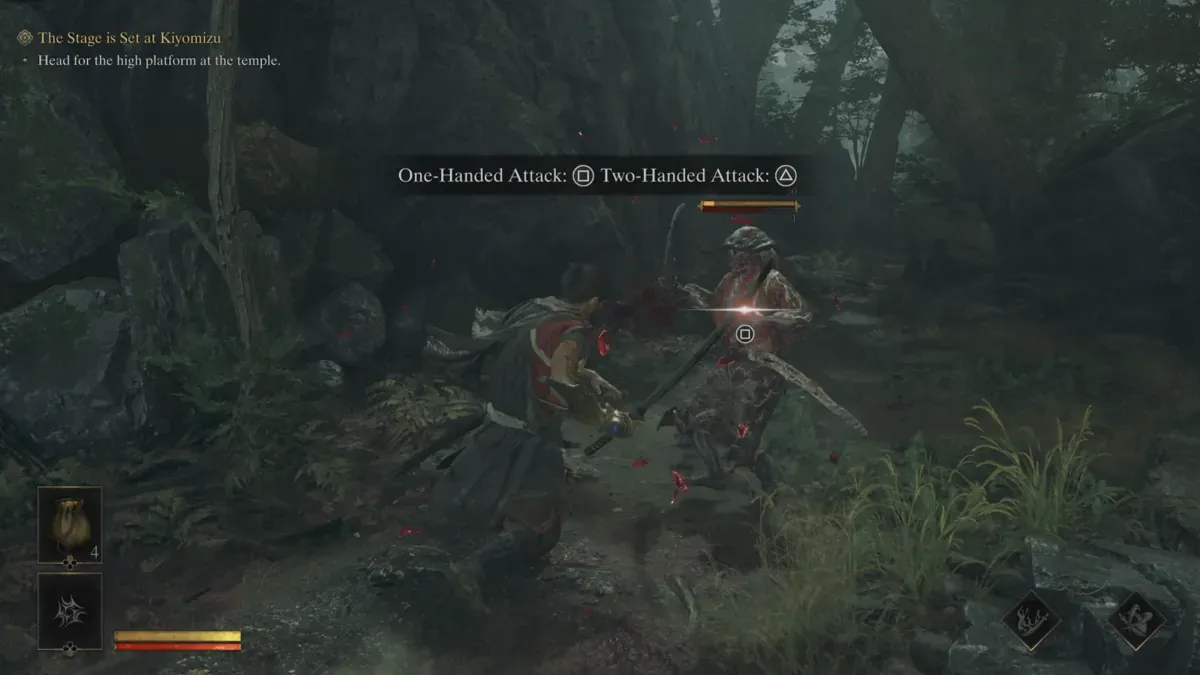
Our hero, Musashi Miyamoto, finds himself in the midst of a demon-plagued Japan. He carries a mysterious bracelet that is draining his life as a mysterious voice beckons him to follow her commands. At this point, the bickering duo hasn’t yet learned to work together, and Musashi doesn’t seem to warm up to the commanding supernatural presence. In a dark and violent game, it was surprising to see how comedic and well-timed the banter turned out, especially as I wasn't expecting it.
The adventure begins right in the thick of the action. Demons are rampaging through villages and temples, and civilians are cut down on a whim. Everywhere I turn, I witness atrocities and terror. As with the original Onimusha, this apocalyptic vision of ancient Japan is heartwrenching and terrifying, and Capcom has done immaculate work in bringing the generational trauma to life.
Musashi doesn't waste time before he starts cutting down the fiends. For now, our goal is simple: reach the inner courtyard of the temple, where Musashi's nemesis, Ganryu Sasaki, awaits.
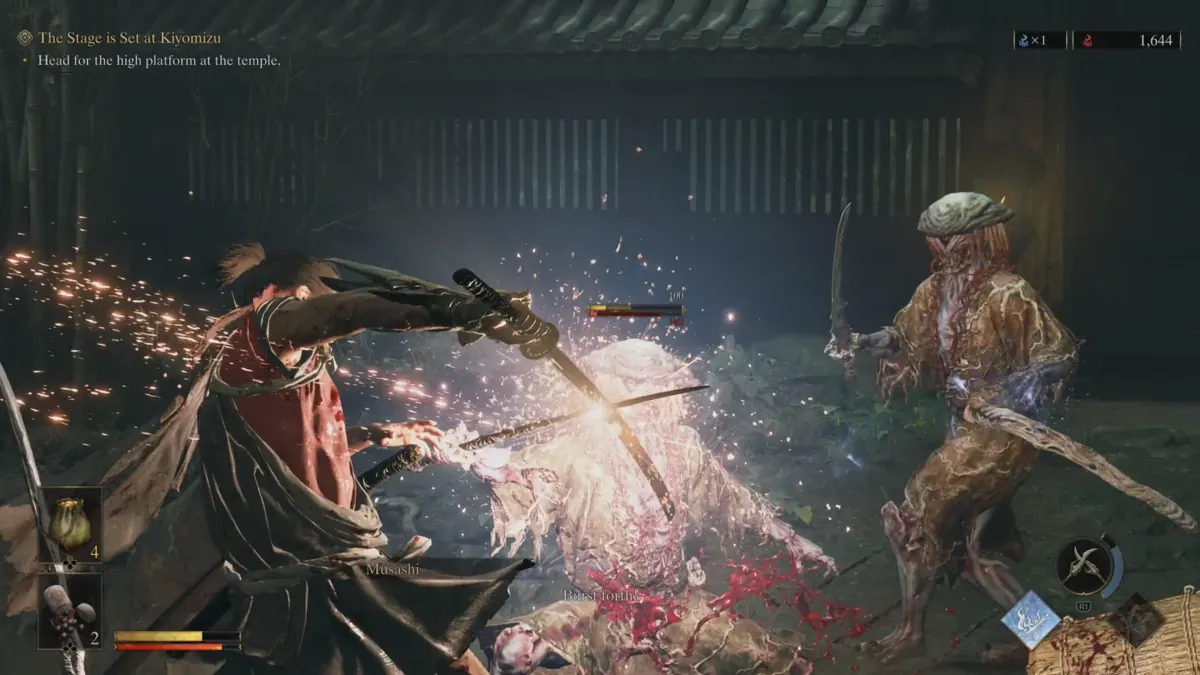
Right from the start, it’s striking how well Capcom has balanced the old PlayStation 2 controls with modern demands. The tank controls are long gone, yet there's a weightiness and deliberate nature to the game nonetheless. Musashi moves exactly as fast or as slow as the situation demands. Exploring the world is quick and fluid, while combat evokes the restrained movements of chanbara films.
For example, you might race down a long path, leaping over obstacles with ease, collecting gear and breaking down barrels, when an enemy steps in your way. Musashi draws his sword, and suddenly his feet are planted in place. He no longer skips or darts about. Instead, pushing the directional stick all the way in any direction only moves him with long, deliberate paces.
Especially when facing multiple enemies, the fighting is nothing short of heavenly brutal ballet, with moves that look and feel stunning. Combatants circle each other, sword tips barely glancing, and there are swift, silent moments where nothing happens, right as violent breaks out.
Musashi and his enemies are governed by both health and stamina meters. The first is self-explanatory; the second enables special attacks if you can wear down an enemy’s stamina. The more foes you stun, the more spectacular the results of your special attacks become. The result is an action game where you're always aware of how much you have left in the tank. During my time with the game, it wasn't long before glancing at the bottom left corner became second nature.
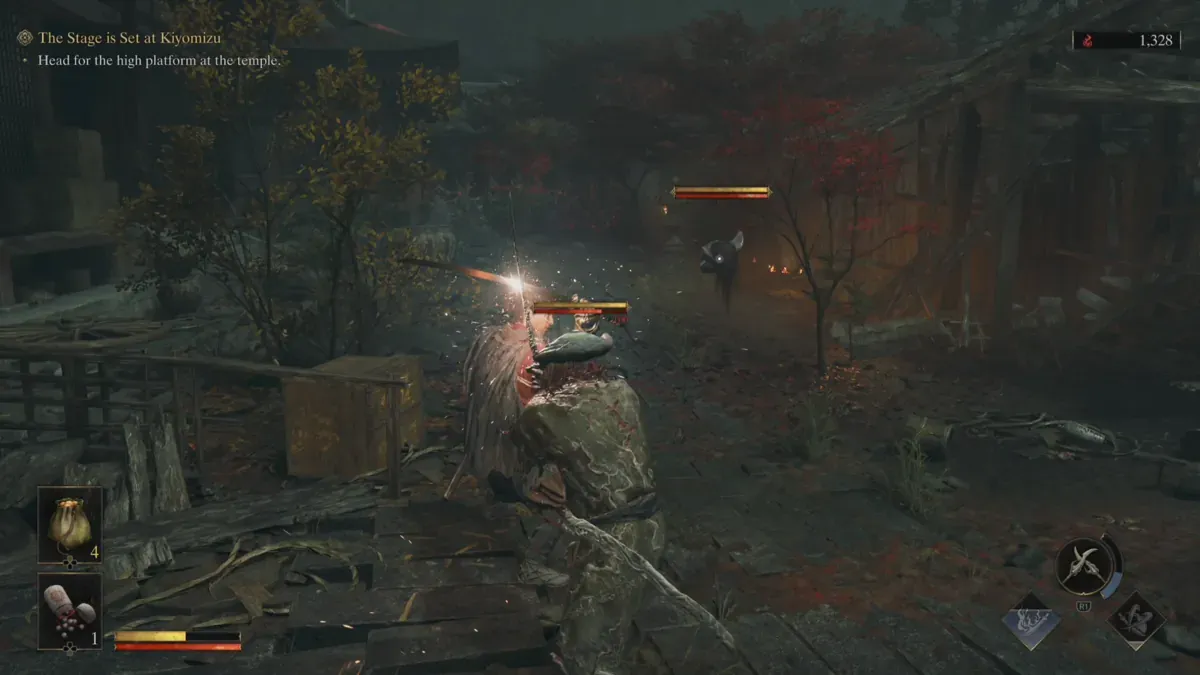
Every defeated enemy drops souls, just as in previous Onimusha titles. And, as before, they come in two varieties that affect different aspects of Musashi's journey. Blue souls heal wounds, red souls buy new abilities. It’s simple and direct, and that's all it needs to be. While Onimusha will have something akin to a skill tree, this isn't an RPG.
Before the demo, I expected Onimusha to be more like Dark Souls in terms of combat. The truth, however, is a bit more complicated. It’s closer in spirit to another Gamescom favorite, Phantom Blade Zero, which also breathes new life into a familiar genre.
Combat is deliberate and difficult, sure, but it isn't relentlessly punishing, either. Both games instead aim for a new, uncharted territory between skill-based action and cinematic power fantasies. At the present, I couldn't be more excited to see this genre change and evolve in this direction.
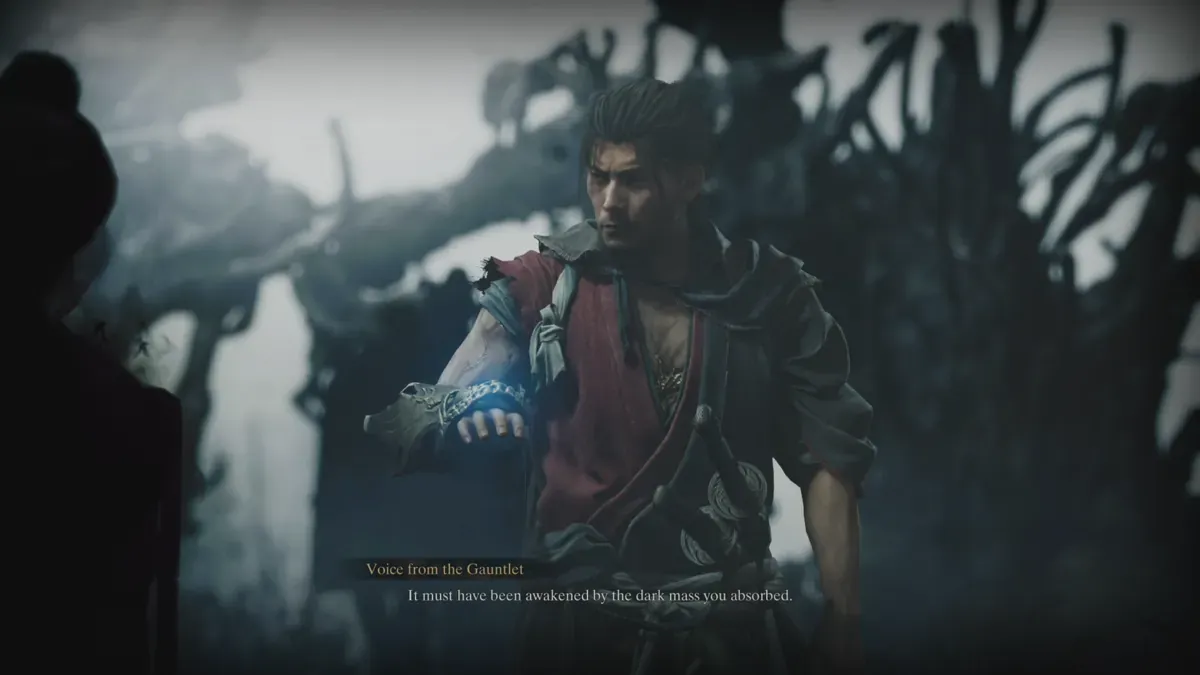
Though Onimusha’s release is still a ways off, it’s already a sight to behold. I tested the demo on a standard PlayStation 5 (not the Pro model), and the game looked gorgeous throughout. The animations are dazzlingly refined, especially the characters’ faces, which are full of details and quirks that delight even in the most hectic situations. It’s immensely cool to see Musashi’s expression change with each sword strike, or as his stamina wanes in a tight spot. While easily missed, these details highlight the cinematic aspects of Onimusha in ways previous entries couldn't due to technical limitations.
Apart from regular enemies, the demo gave a peak at how boss battles in Onimusha will work. Here, the battle against Ganryu came packed with elements familiar from both films and previous Onimusha titles, which work beautifully in the rhythm of an action game. Once again, the characters circle each other before decisive blows; hats fly apart when struck, and dramatic parries bring the camera right into the heart of the action, with the combatants faces just inches apart.
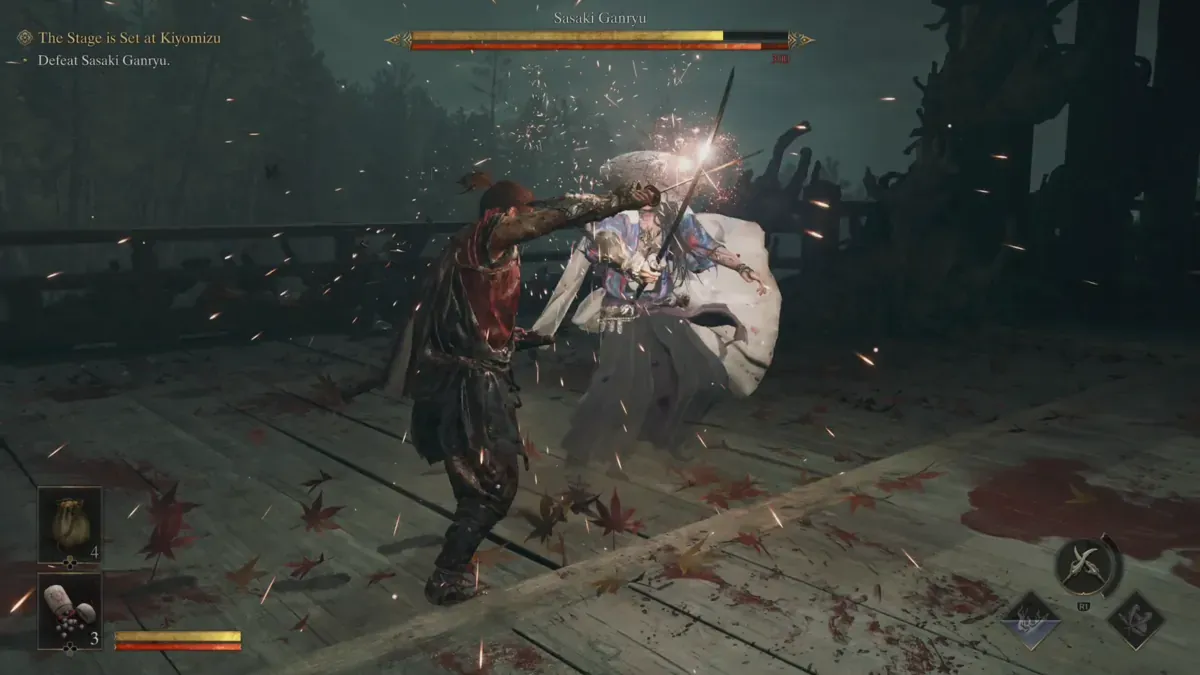
Unlike Phantom Blade Zero, which focuses on the hyperkinetic Wuxia elements to create a staggering brawl that flows from one move to the next, Onimusha is more akin to films like Sanjuro, Zatoichi, and Blade of the Immortal. Stories where the action is glacial until it really isn't.
If you land enough hits on the boss to deplete his stamina bar to zero, Musashi can choose where to focus a special attack. One option deals more damage, while the other yields more souls for later use. The already tactical swordplay gains even more depth as a result.
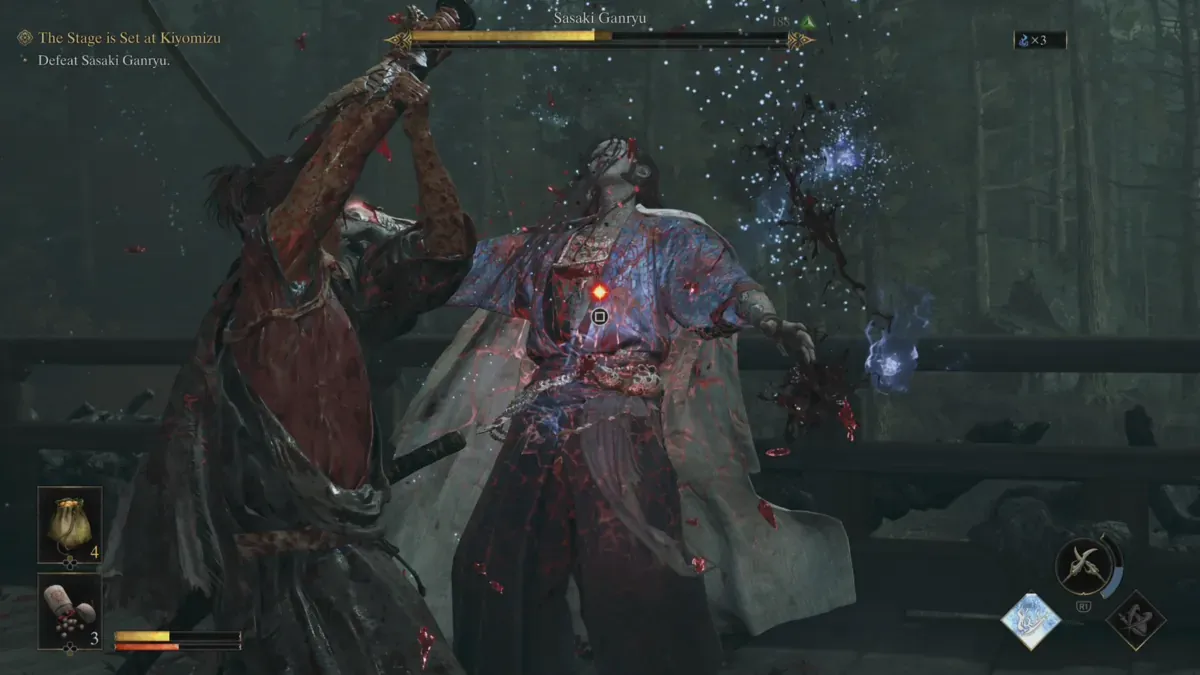
Based on the demo, the game offers several difficulty levels; I played on Normal, or “Action” difficulty, and it’s possible to make the action even easier. As it stands, the experience felt just challenging enough, and Onimusha didn’t go easy on me at any point. I'm sure more combat-oriented veterans will probably find it a bit too lenient, especially thanks to the cinematic parry windows, but I think it's a perfect middleground once again. Not everything needs to be a soulslike.
There’s no confirmed information yet on the game’s length or release date. The developers on site estimated that the game would offer well over 20 hours of gameplay, which feels just right for a semi-linear adventure. If Onimusha: Way of the Sword maintains the quality seen in the demo, both series fans and action game enthusiasts are in for an absolutely spectacular treat.










